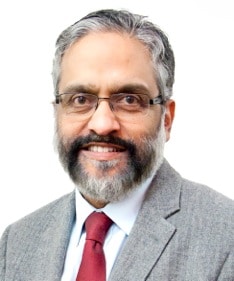Scientists are very close to snipping inherited genetic diseases out of human offspring using a gene-editing technique called CRISPR. For the first time, scientists said, they corrected a gene mutation linked to inherited heart conditions in human embryos using the approach.

Kashmiri doctor helps in modification of genes in human embryos
HIGHLIGHTS
- Correction of gene mutation in human embryos
- Genetically modification human embryos have been developed in the US
- The researchers used gene editing technique CRISPR
Belmonte said, in a research lab, the researchers used CRISPR, the gene-editing technique, to remove the harmful MYBPC3 mutation from the human zygotes. Then, the zygotes' own DNA-repair mechanism replaced what was cut out with a copy of a MYBPC3 gene from the mother, which did not carry a mutation.
The co- author of the study Dr Paula Amato, an obstetrician gynecologist at Oregon Health and Science University further said "A male research subject known to be heterozygous for this gene mutation was recruited for the study, as were several healthy young egg donors."
Juan Carlos Izpisua Belmonte who was the co-author of the study, described it as the first in the world to demonstrate gene-editing to be safe, accurate and efficient in correcting a pathogenic gene mutation in human embryos. Chinese researchers were unsuccessful at achieving this without safety concerns.
"This is the first that has been demonstrated as safe and working," said Belmonte, a professor at the Salk Institute for Biological Studies' gene expression laboratory in La Jolla, California.
"All cells of the embryo were corrected," he said. "It seems to be working from these samples that we have chosen, but we need to do much more basic research with many other genes."
Co-author Kaul, a professor of medicine (cardiovascular medicine) in the OHSU School of Medicine and director of the OHSU Knight Cardiovascular Institute said "Although the rare heart mutation affects men and women of all ages, it is a common cause of sudden cardiac arrest in young people, and it could be eliminated in one generation in a particular family."
The study was collaboration between the Salk Institute, the Oregon Health & Science University in Portland and Korea's Institute for Basic Science. More than 10,000 human diseases may result from mutations to a single gene occurring in all cells of the body, according to World Health Organization.
With inputs from PTI
DoctorNDTV is the one stop site for all your health needs providing the most credible health information, health news and tips with expert advice on healthy living, diet plans, informative videos etc. You can get the most relevant and accurate info you need about health problems like diabetes, cancer, pregnancy, HIV and AIDS, weight loss and many other lifestyle diseases. We have a panel of over 350 experts who help us develop content by giving their valuable inputs and bringing to us the latest in the world of healthcare.













